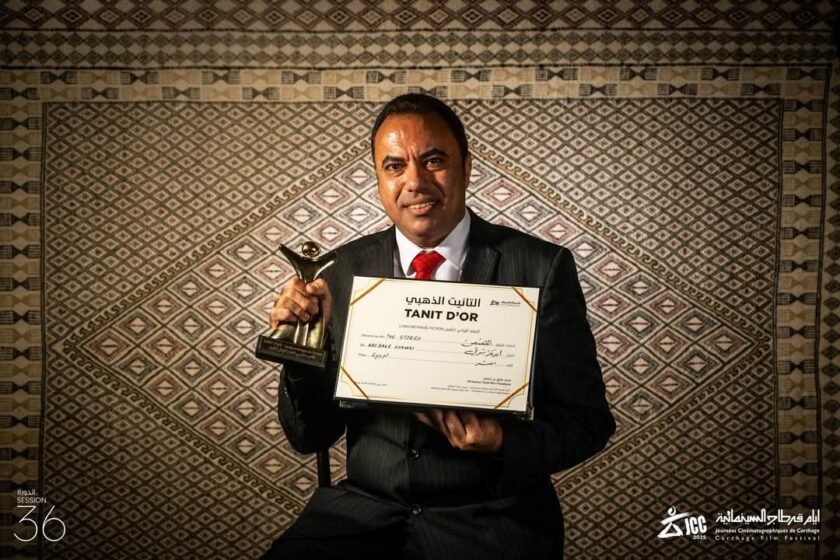Arab media alliance to face climate change
Over 150 media professionals and experts from Arab countries and the world gathered in Baghdad to explore the reality of the Arab media’s handling of climate change issues and ways to develop this media performance to streamline scientific information, mobilize awareness, and support policymakers and decision-makers.
The Arab States Broadcasting Union (ASBU) organized the fourth session of the Arab Media Conference under the title ‘The Role of Media in facing Climate Change.’ This year, for the first time, the conference left Tunisia for Baghdad, hosted by the Iraqi Media Network from May 20 to 24, 2024.
/ Toward an Arab media alliance to face climate change
The conference, in which Iraqi Prime Minister Mohammed Shia Al Sudani called for the launch of an Arab media alliance to face climate change and environmental challenges, comes immediately after Iraq hosts the 34th Arab Summit and the fifth Economic and Social Development Summit, and in the context of the environmental impacts of the wars it has endured and climate change, which it seeks to overcome its environmental consequences through its launch of the “Green Iraq Initiative” and the selection of Baghdad as the capital of Arab tourism in 2025.
For his part, Head of the Iraqi Media Network Abdul Karim Hamadi said that the conference sends a message that the media is not only a carrier of news but also a detector of needs and a partner in development and cooperation, and that Iraq has returned to its Arab surroundings and is able to be a center of cultural and media radiation for a free national media open to the world.
ASBU President Mohammed Fahad Al-Harithi, explained how climate change is no longer a scientific issue, but a reality that we live with every day, and 14.5 million people die every year, making the role of the media not only to stimulate awareness but to direct the collective consciousness towards the need to protect the planet.
Abdul Rahim Suleiman, Director General of the Union, noted that the aim of this annual conference is to deepen the dialogue on topical issues, and that the Arab media’s approach to climate issues needs a new approach that goes beyond the institution and complex scientific nature towards a simplified daily discourse.
The meeting, for which the Arab States Broadcasting Union and the Iraqi Media Network provided all the logistical means of success and continuous coverage over four days, was an incubator for brainstorming, discussions, scientific lectures and presentations to exchange experiences paved by the four themes of the sessions, namely the reality of media addressing climate change issues (presenting human stories that highlight the impact of climate change on the lives of individuals and communities), solutions journalism, media functions in climate change issues, concepts and social and economic impacts, and the role of investigative journalism in exposing risks and violations.
The official launch of the conference was preceded by two introductory workshops on “Early Warning for All (EW4ALL) and Awareness” in which Dr. Mustafa Al-Hindi, Program Officer at ITU, presented the United Nations Secretary General’s initiative on early warning launched in 2021, which affirms the right of every human being on the planet to early warning before disaster strikes in 2027.
Al-Mahdi also revealed that only four Arab countries have mobile phone-based early warning systems, while Tunisia has no early warning system.
//Creating a platform for media professionals specialized in climate issues
The discussions during the conference sought to cover various aspects of the topic “The role of media in facing climate change.” In addition to the role of artificial intelligence in providing inspiring news stories that would raise awareness of the need to protect the planet, the role of training to avoid misinformation was emphasized, as was the need to adapt the legislation currently in force in many Arab countries to the changes resulting from climate change and modernize the dilapidated infrastructure that causes the high number of victims due to disasters resulting from climate change.
In their recommendations, the conference participants called for creating an Arab platform that includes journalists interested in climate change issues, investing in their training and formation, investing and stimulating local initiatives that offer innovative solutions to climate change, designing climate change issues within the development plans, programs and policies of Arab countries, and strengthening the partnership with UN organizations specialized in this field.
TunisianMonitorOnline (TunisianMonitorOnline correspondent Dhouha Talik)




